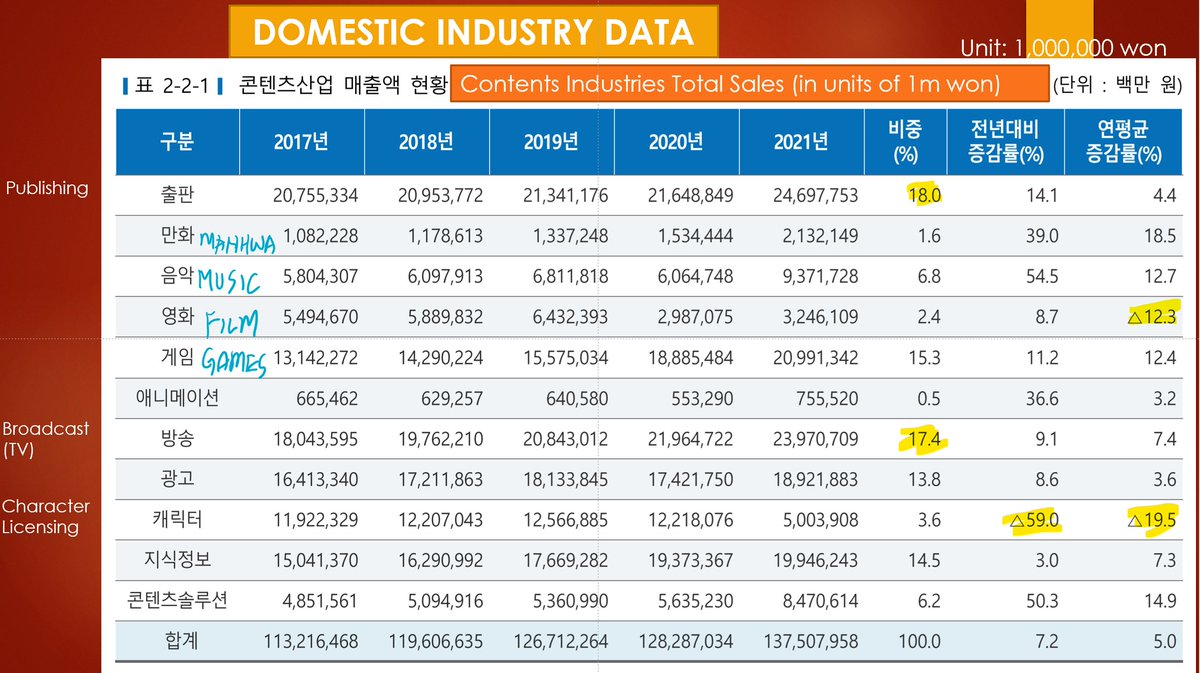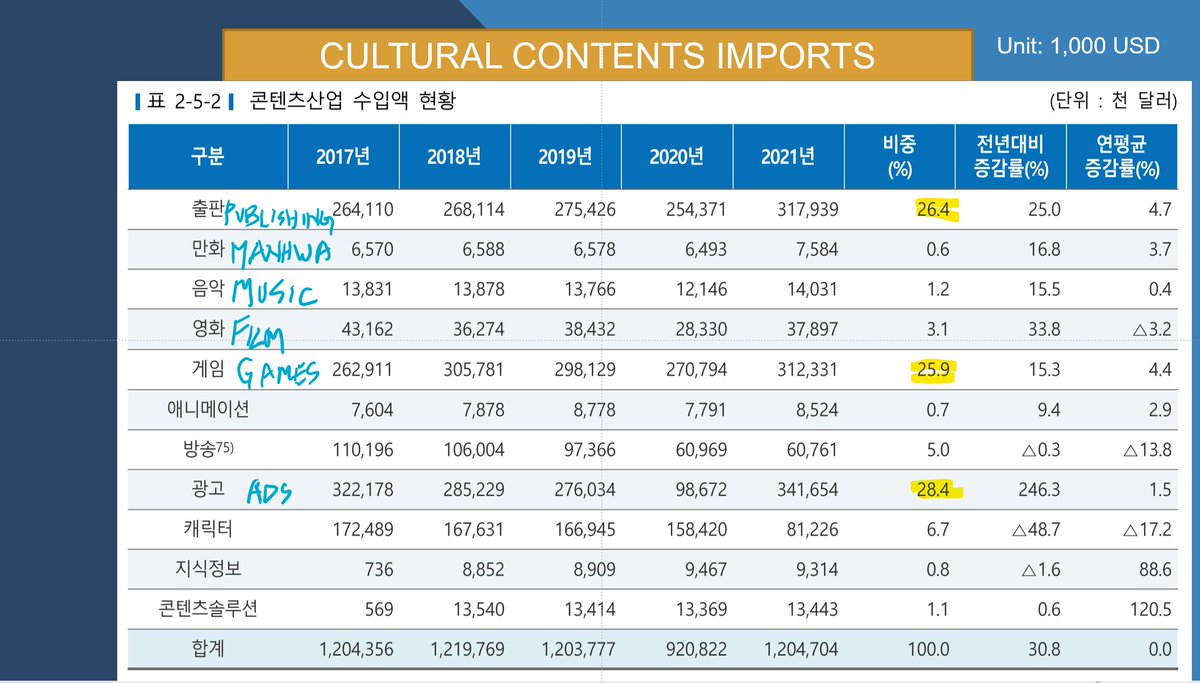KOCCA (Korea Creative Content Agency), tracks the cultural industries and releases the latest gov't figures. As of now, the most recent figures are until Dec 31 of 2021. #KOCCA won't release the 2022 figures until next year. So, do you want to see how the industry is doing? #kpop 

If you look at this you can easily see that music remains a small part of Korea's cultural exports. Even though we see growth year after year, the growth is not happening on the same rate as the growth in games (Wow! Almost 70% of Korea's cultural exports!).
The cultural industries themselves are not all of Korea's exports, and if you compare the dollar amount of these exports below, you can see how much they dwarf music, which still exports under 1 billion USD. This doesn't mean the cultural exports aren't important, they are. 



The cultural industries are employers of Koreans, and the exports of culture have an outsized impact on global understanding of and feelings about Korea. #softpower #publicdiplomacy
Here's the number of culture related businesses:
Here's the number of culture related businesses:

And here are the size of those businesses in terms of numbers of employees (many smaller companies aren't profiting). Also, the size of employees does not include idols (because of the type of contracts). 

So, where is Korea sending those cultural content exports? As you can see #China, #Japan, and #SoutheastAsia are the big players. North America is the 2nd biggest for consumption of Korean publishing, and 3rd for games. Europe still is a relatively small consumer. 

I've basically explained this on the slide, but the biggest issue here is definitely that despite the frosty relations between China and Korea, the Chinese market is pretty consistently showing up for Korean cultural exports. 

You might also be interested in the sales of Korean cultural contents DOMESTICALLY (how much K-pop, games, etc. made in Korea are consumed in Korea). Here we can see that games do not dominate in the same way. 

And here is the cultural contents IMPORT data for Korea. Note that Korea imports a total of 1,204,704,000 but exports a total of 12,452,897,000 USD. Not too shabby! 

And this is where Korea is importing FROM. (I already talked about this earlier in the week, but yes, look at Korea's love affair with North American cultural contents.) 

I hope that these statistics entertain you, or give you a greater understanding of cultural flows in and out of Korea. The entire report is available on KOCCA's website (in Korean).
• • •
Missing some Tweet in this thread? You can try to
force a refresh

 Read on Twitter
Read on Twitter



